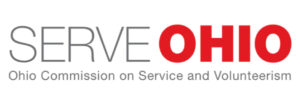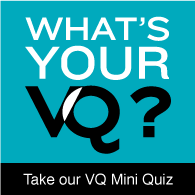
Smarter Impact Starts Here
Case Studies
Volunteer Accelerator Amplifies Impact through UJA-Federation of New York
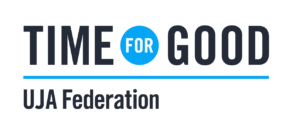
The Need
When the COVID-19 pandemic hit New York City in March 2020, the country’s largest local philanthropy, UJA Federation of New York (UJA), tapped into its longstanding commitment to volunteer engagement to respond quickly to the new and urgent needs for food assistance among homebound and unemployed community members. For food pantries that regularly functioned with a skeleton staff and a handful of volunteers packing food for client pick-up, COVID-related restrictions posed a whole new set of challenges. How could they safely pack the foods? Who would deliver them? Could they find, screen, train, and support volunteers to help? UJA’s Volunteer Accelerator, designed to help organizations more strategically engage volunteers, helped three of the food pantries pivot to address these challenges and the dramatic spike in demand.
About UJA
Dedicated to supporting New York area organizations with a focus on caring for those in need, building Jewish life and responding to crises worldwide, UJA recognizes the essential role of volunteers in addressing critical community needs and prioritizes volunteerism across many of its departments. Since 2014, UJA’s Time for Good Committee – comprised of staff and dedicated lay leaders – has invested in the work of more than 30 organizations with the goal of building capacity to achieve mission through engaging volunteers. Funding has supported staff positions dedicated to volunteer engagement, as well as training, tools, technology, and coaching by VQ Volunteer Strategies and others to enable organizations to harness best practices for effective engagement.
Strategy
In fall 2019, UJA launched the Volunteer Accelerator, an initiative that equips organizations eager to build capacity through the strategic engagement of volunteers in a specific program. This new model, designed in partnership with VQ Volunteer Strategies, provides volunteer engagement training, individual coaching sessions in developing and implementing new volunteer roles and infrastructure, and a community of practice to explore engagement trends, pilot new practices and share learnings with similar agencies.
The first Accelerator supported teams from the Jewish Community Council of the Rockaway Peninsula, UJC of the East Side and the Shorefront Jewish Community Council as they prepared to implement new digital pantry technology to help clients customize food packages. Guided by the VQ Volunteer Strategies’ training and coaching, they identified needs that could be addressed by volunteers, designed new roles and planned recruitment.
Two months into the project, the COVID-19 pandemic struck.
Postponing the implementation of the new digital system and leaning on best practices, tools, ongoing training and support already provided by VQ through the Accelerator, the teams assessed needs, designed new volunteer positions and began recruiting and supporting volunteers to meet the changing community needs. Responding to the immediacy of the pandemic, UJA connected the pantries to partners who could help recruit new volunteers. In short order, volunteers were sorting, packing, and delivering thousands of pounds of food to community members. Additionally, partnerships were developed with local grocery stores to serve as weekly market pick-up sites for pantry bags.
Impact
- Follow-up evaluation showed that all three organizations measurably improved their use of engagement best practices and significantly increased the number of food pantry volunteers (one panty more than doubled its volunteer corps and the other two went from no volunteers to dozens of volunteers within a few months). Two of the three increased on average by tenfold the number of remote clients accessing the pantry and receiving home delivered meals.
- Training UJC of the East Side how to professionally engage volunteers allowed them to significantly increase the number of clients served and meals delivered. Before UJA intervened with support, UJC served 4,500 meals in person to 627 unique clients without any volunteers. Thanks, in part, to the assistance of 81 volunteers, in Fiscal Year 2020, UJC served 31,014 meals to 1,182 unique clients. In fiscal year 2021, UJC continued to increase the food program, engaging 110 volunteers to help pack and deliver nearly 40,000 meals.
- Buy-in for strategic engagement of volunteers within the three organizations reached beyond food pantries into other service areas. For example, the JCC of the Rockaway Peninsula engaged more than 75 virtual volunteers in the 2020 Census project, making calls, sending messages, and utilizing social media to Get Out The Vote.
Coaching for Success: Riverdale Y Builds a Volunteer Program
Riverdale Y, a community center based in the Bronx, NY, is a century-old organization devoted to the well-being of the whole community through educational, wellness, and service programs for all. Volunteers have been engaged in varied ways over the years, but the organization had never formalized its commitment to a volunteer engagement strategy through a full-time, dedicated volunteer coordinator until circumstances changed due to the COVID-19 pandemic.
Prior to 2020, one of Riverdale Y’s flagship programs was the Senior Center, which, in addition to its educational and support services, served lunch in the Y’s dining room, providing nutrition and social connection to seniors Monday through Friday. When COVID hit and the Senior Center along with most of Riverdale Y closed down, leadership knew that they had to find a way to sustain this vital service—which is where volunteers came in. Volunteers were engaged to help to package and deliver 200 meals a day—for 18 months.
Taking note of this pivot, UJA Federation of New York approached Riverdale Y with the opportunity to apply for funding for a volunteer coordinator through financial support for the salary, food for the deliveries to homebound seniors, and coaching, provided by VQ Volunteer Strategies.
By February 2021, Alexandra Nyashina was hired as the first full time Director of Volunteer Services. Alexandra brought deep experience in customer service and project management from years in the luxury hospitality industry but was new to volunteer engagement specifically. VQ Volunteer Strategies was there to support her and the rest of the staff as they navigated this transition and built a strategy for volunteer engagement across the organization. Alexandra’s professional experience, desire to apply her skills to mission-driven work, and commitment to learning made Alexandra a great partner for coaching.
For two years, VQ Volunteer Strategies’ President Beth Steinhorn had monthly virtual calls with Alexandra and, at times, other staff from Riverdale Y. In the first year, calls focused on establishing practices and tools for efficient engagement—and Riverdale Y developed position descriptions, policies and handbooks, recruitment plans, and communications plans. Together, Beth and Alexandra also developed strategies to build support across departments and develop an organization-wide vision for volunteer engagement. Regarding that first year, Alexandra noted, “Having no experience working with volunteers, I was excited to receive needed guidance, structure, and support and I got all of that.”
By the second year, the focus expanded to equipping other staff for success, nurturing the community partnerships to enhance recruitment, and more advanced professional development for Alexandra.
When asked about the tangible outcomes from this coaching experience, Alexandra shared:
- I have an extremely professional program here. From first point of contact through a volunteer’s point of departure, they are treated with utmost respect and they feel that they are making a difference.
- We also have a full set of documented processes, from position descriptions and orientations to beyond, this coaching taught me about these building blocks.
- Thanks to all this support, we have grown from four volunteers’ names written on a little scrap of paper when I first walked in here to now, when we have over 100 committed volunteers. We have a database and sustainability.
- Most importantly, when we reopened for in-house service, we served 30 people, but now, thanks to our reliable corps of volunte
- ers ranging in age from 16 to 80, we regularly serve 70 meals daily (and once a month, serve 200 meals to celebrate birthdays and other special events).
Additionally, as a testament to her professional growth, Alexandra is now leading a volunteer engagement focused community of practice for the JCC Association of North America, the first of its kind, as far as we know.
Through VQ Volunteer Strategies’ coaching, Alexandra and others like her gain new skills and hone others, more effectively champion organizational change and serve as an internal resource on volunteer engagement best practices, and recognize that the organization is investing in and supporting them towards success. As such, they are more likely to be satisfied in their role.
Moving from Program to Strategy at San Diego Humane Society
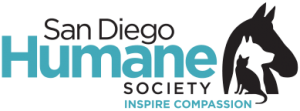 When San Diego Humane Society’s Director of Volunteer Engagement reached out to us at VQ Volunteer Strategies (then known as JFFixler Group) in late 2014, she described San Diego Humane Society as an organization experiencing “epic growth.” Three mergers in the span of just a few years expanded the type of services, increased the organization’s geographic reach, and nearly doubled the volunteer corps (from 2,850 to over 5,000 volunteers) encompassing what had previously been four independent volunteer programs.
When San Diego Humane Society’s Director of Volunteer Engagement reached out to us at VQ Volunteer Strategies (then known as JFFixler Group) in late 2014, she described San Diego Humane Society as an organization experiencing “epic growth.” Three mergers in the span of just a few years expanded the type of services, increased the organization’s geographic reach, and nearly doubled the volunteer corps (from 2,850 to over 5,000 volunteers) encompassing what had previously been four independent volunteer programs.
Throughout its 125-year history, San Diego Humane Society has been dedicated to strengthening the human-animal bond, preventing cruelty/neglect, educating the community on humane treatment of animals, and providing community education and safety net services to pet families needing assistance. Volunteers have actively helped to deliver on this mission since the Society’s inception, and the role and scope of their work had evolved along with the organization. Now, on the heels of three mergers and the adoption of a new strategic plan calling for increased community engagement, the need to once again adapt the volunteer engagement strategy was clear – and the Humane Society reached out to us for guidance.
Specifically, senior leadership sought help in answering these questions:
- How should we structure the volunteer engagement department to best support multiple campuses and programs?
- How can we best unify these programs, maximize our resources, and leverage volunteer talent to support the organization’s overall priorities?
To address these questions, San Diego Humane Society engaged us to assess their current state of engagement, recommend a staffing structure to support volunteer involvement, develop an engagement strategic plan to map their future actions, and write a guide to direct daily engagement practices across all campuses and programs. Together, these four efforts helped achieve the overall goal of an organization-wide transformation from considering volunteers as a program to instead embracing volunteer engagement as a strategy.
Over the course of a year, we partnered with San Diego Humane Society on all four of these efforts.
- During the Assessment, we reviewed documents, policies, and procedures, conducted a site visit, interviewed more than 30 staff and volunteers, and developed a customized online survey. We synthesized the data into a report with data highlights and recommendations. This assessment helped the Humane Society understand its current strengths and challenges – none of which were surprising to executive leadership, but having the data to confirm their experience paired with our specific recommendations for action proved valuable.
- In conjunction with the assessment, we reviewed the current Staffing Structure for supporting volunteers and developed recommendations for realigning human resources to engage more volunteers in the Society’s mission-critical work. Our report included recommended adjustments to the organizational structure, position descriptions, and competencies for hiring volunteer engagement staff.
- The Strategic Planning process built upon the assessment results but shifted the focus from the Society’s current state to its desired future. After consulting on the formation of a planning task force, we facilitated a cross divisional planning retreat which marked the first time that all divisions were represented in planning for volunteer engagement. The high-energy day resulted in a new, unified vision for engagement and a draft plan with priority issues, goals, and objectives designed to achieve that vision over the subsequent three years. We continued to support teams of staff and volunteers in finalizing the plan and coached leadership on sharing the plan across the agency.
- Finally, to address two of the pressing issues that arose through the planning process – Nurturing connectivity and consistency across all campuses and programs and establishing practices that are pillars of our desired volunteer engagement culture – we developed a Volunteer Engagement Guide to outline the processes and procedures for engaging volunteers that all campuses and programs of the Humane Society should follow.
Throughout this work, we also provided coaching to volunteer engagement leadership on implementing the plan and the realignment of HR resources. In fact, we have continued to coach the team through their final year of implementing the plan and prepare for their next planning cycle.
Since the development of this first strategic plan for volunteer engagement, San Diego Humane Society experienced a dramatic shift in perspective across the organization. The plan and its subsequent updates continue to guide their work. The Director of Volunteer Engagement meets regularly with executive leadership to report on progress and the plan gives her stronger ability to advocate for needed resources – as well as to say “no” to requests that would not advance their overall vision for volunteer engagement. They have a staffing structure that makes sense for their priorities. Additionally, the volunteer engagement plan is on everyone’s radar and, as a result, they have cross-divisional communication in a way that didn’t previously exist. Most importantly, they have been able to to scale volunteer involvement and impact as the organization continues to grow and evolve.
To learn more about our work with San Diego Humane Society, read our article in e-Volunteerism Journal, “Moving Beyond Program: Developing a Volunteer Engagement Strategic Plan.”
Citywide Engagement Builds Resilience for the City of Fort Collins
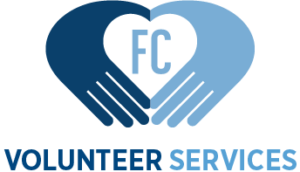 In 2020, when volunteer efforts in many cities across the nation ground to a halt due to the COVID-19 pandemic, the City of Fort Collins – a municipality of about 175,000 residents located at the foot of the Rocky Mountains in Northern Colorado – recognized that volunteers could play a pivotal role in responding to this crisis; it was immediately clear that many residents would be isolated in their homes and need assistance with errands, groceries, and neighborly support. While the City’s recreation centers, arts centers, and many indoor public programs were temporarily shuttered, Fort Collins pivoted its volunteer engagement to meet the new needs for neighbor-to-neighbor support. But this story of tapping volunteers for response began long before COVID-19.
In 2020, when volunteer efforts in many cities across the nation ground to a halt due to the COVID-19 pandemic, the City of Fort Collins – a municipality of about 175,000 residents located at the foot of the Rocky Mountains in Northern Colorado – recognized that volunteers could play a pivotal role in responding to this crisis; it was immediately clear that many residents would be isolated in their homes and need assistance with errands, groceries, and neighborly support. While the City’s recreation centers, arts centers, and many indoor public programs were temporarily shuttered, Fort Collins pivoted its volunteer engagement to meet the new needs for neighbor-to-neighbor support. But this story of tapping volunteers for response began long before COVID-19.
About Fort Collins
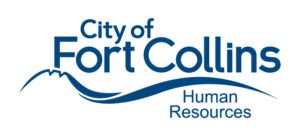
Since 1985, volunteers have played a vital role in the City’s mission of “exceptional service for an exceptional community,” with more than 10,000 volunteers serving each year.
Beginning in 2015, the City streamlined its approach across initiatives, departments, and programs by integrating all facets of engagement into one cohesive strategy. These efforts, along with training and coaching provided by VQ Volunteer Strategies in partnership with Spark the Change Colorado, Fort Collins achieved Service Enterprise certification. More importantly, the focus on strategy, along with the associated time, funds, and human capital, positioned Fort Collins to effectively combat the challenges of the COVID-19 pandemic.
Strategy
Innovations in City Volunteering
As the COVID-19 crisis unfolded, the City’s Office of Emergency Management quickly turned to the Volunteer Services Program to extend its resources. Within days of the first COVID-related quarantines and shutdowns, the City’s volunteer engagement team reached out to partners including VQ Volunteer Strategies to plan the creation and launch of a virtual COVID response center that leaned on existing technology to onboard new volunteers and pair them with neighbors needing help.
Responding to facility closings, staff members revamped the existing Adopt a Neighbor program – which initially paired volunteers with a neighbor in need of support for daily tasks – to help those most severely impacted by COVID-19 isolation. With leadership support, guidance from VQ Volunteer Strategies, and assistance from the Spark the Change Colorado volunteer center, the redesign and pivot were accomplished in just five business days, featuring opportunities like Adopt A Neighbor and, shortly after, a Virtu Visit program to connect isolated community members with volunteers through technology.
The Next Steps to Strategy
Adopt A Neighbor, Virtu Visit, and other programs demonstrated the power and potential of engaging volunteers in response to crisis, but the city also recognized that, by planning ahead, the community could be even more responsive. In 2021, the City partnered again with VQ Volunteer Strategies to develop a citywide volunteer engagement plan.
The planning process kicked off with Discovery and Assessment.
Discovery and Assessment was designed to get a snapshot of current volunteer engagement practices and attitudes and identify needs that could be addressed by engaging volunteers in new roles. The assessment included:
- A review of all existing volunteer-related policies, procedures, documents, and survey results
- Interviews with staff and volunteers across the city
- A customized survey
VQ Volunteer Strategies analyzed the data and developed a report with recommendations for action, including ensuring leadership sees and fully understands the value and impact of volunteer involvement, conducting research to better understand barriers to volunteering in the city in order to enhance the accessibility and diversity of the volunteer corps, and piloting new roles to build capacity of City programs. The discovery also surfaced training opportunities for staff and volunteers as well as recruitment strategies.
The Citywide Volunteer Engagement Strategy was developed collaboratively by VQ Volunteer Strategies and a cross-divisional planning task force. Through virtual retreats, we facilitated the refinement of the city’s vision for volunteer engagement and the drafting of strategy with priorities, goals, and objectives to achieve that vision.
Through this work, the City of Fort Collins now has:
- A city-wide vision and appreciation of volunteer engagement as a strategy to help all departments achieve their goals
- A more unified system for recruitment, onboarding, and recognition
- Metrics for the impact of volunteer involvement
- A plan to guide their work for years to come
Partnering with ServeOhio to Strengthen Volunteer Engagement Professionals
With a mission to strengthen Ohio communities through AmeriCorps and volunteer engagement, ServeOhio is dedicated to enhancing the ability of community organizations to strategically engage and deploy volunteers to advance their missions. A core component of this work has involved addressing the loss of Ohio’s once-robust volunteer center network. “Fifteen years ago, Ohio had a thriving network of volunteer centers offering extensive training and support,” says Rebeccah Verhoff-Kiss, ServeOhio’s Director of Strategic Engagement. “But over time, due to funding and organizational changes, much of that infrastructure disappeared, leaving a significant need for fundamental volunteer engagement training.”
ServeOhio’s journey to develop this course began with a project focused on skills-based volunteerism (SBV), funded by the Volunteer Generation Fund. “Our initial program aimed to bring together nonprofits for SBV training,” shares Verhoff-Kiss. “But we quickly realized that many organizations needed more foundational support. SBV was a 2.0 level, while many groups needed help with volunteer engagement basics.”
Recognizing this gap, ServeOhio engaged VQ Volunteer Strategies back in 2021 to develop a fundamentals course designed specifically to equip nonprofit and public sector organizations with the skills necessary for effective volunteer management. Since launching in 2022, this online fundamentals course has been facilitated twice yearly. Each cohort has had strong registration as word of mouth has spread. Today, organizations across Ohio are participating, including those from smaller communities and a wide range of fields from local history to health and hospice care.
The Building Blocks for Engagement
The fundamentals course features six sessions covering the essential stages of the volunteer engagement lifecycle. Designed for nonprofit, faith-based, public sector, and community organization professionals, the course has a formal application process, but is offered free for Ohio participants. The comprehensive curriculum covers everything from the strategic recruitment of volunteers to best practices in ongoing engagement, empowering participants with tools to build effective volunteer programs.
Each session incorporates information, case studies, resources participants can use in their own practice, and peer sharing both in the full session and through breakouts. Between the weekly sessions, VQ’s Facilitator, Beth Steinhorn, posts prompts and facilitates conversations on Basecamp to ensure that participants stay connected, access resources, and build support networks within their fields. In this way, the course has fostered connections among participants, including those who might otherwise lack opportunities for engagement and collaboration.
Lasting Impacts
Since its inception, the fundamentals course has reached over 500 participants across six cohorts. ServeOhio sees tremendous benefits from bringing together organizations of different sizes and fields, allowing smaller grassroots and BIPOC-led organizations to access the tools they need to thrive. “One of our goals is to diversify the organizations we support statewide, and this course has helped us expand our network,” says Verhoff-Kiss. “We’re seeing participants go on to apply for National Days of Service grants, attend statewide conferences, and become integral parts of our network.”
Additionally, ServeOhio’s AmeriCorps programs have benefited, with members attending the course as part of their community engagement initiatives. The course has become a vital support system for subgroups within the field, from rural local history organizations to CASA (Court Appointed Special Advocates) networks. Verhoff-Kiss explains, “Seeing participants come back to us and say they’ve implemented what they learned is incredibly rewarding. We even had 16 CASA members in a recent cohort, each benefiting from connections they wouldn’t have made otherwise.” This program has even drawn interest from the Ohio Museums Association, which invited ServeOhio to present at a pre-conference session, underscoring the course’s reach and reputation.
Overall, participants report feeling empowered to revamp their programs, drawing confidence from knowing they have the foundational knowledge to engage volunteers successfully.
Looking to the Future
ServeOhio and VQ’s fundamentals course continues to grow, with each new cohort bringing fresh energy and insights. ServeOhio hopes to keep expanding its reach across Ohio, ensuring that organizations from all corners of the state can access the support they need.

